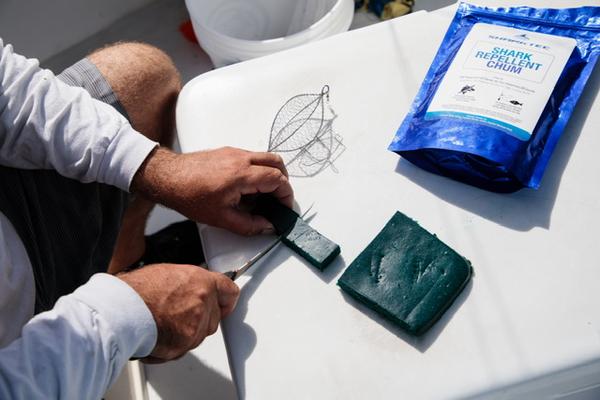Humans have long had a sense that a decaying shark will drive away its own species. Records as far back as the 18th century indicate that fishermen have dangled dead sharks in the water to clear their grounds. The Navy tried to figure out why around World War II but was unsuccessful, and the second half of the last century saw gimmicky attempts at shark repellents that attempted to re-create the scent of a dead shark.
Then, around 15 years ago, organic chemist Eric Stroud and marine biologist Patrick Rice of the R&D company Shark Defense Technologies got serious about studying why dead sharks repel living ones, and how this knowledge might be used to help fishermen.
Stroud “ultimately identified about 112 of these properties, called necromones, that are in sharks when the shark is decaying. They developed several products — spray cans, a high concentration to put in the water — but nothing that was really practical for fishing,” said Luke Walsh, who owns SharkTec Defense.
Walsh explained that a 2012 test on Florida longliners found the repellent produced by Shark Defense Technologies reduced shark bycatch by 78 percent over one- to four-hour fishing periods, but its effectiveness dipped drastically for longer fishing periods, making it impractical for longliners who often fish 10 hours or longer.
SharkTec got involved in 2015 and released bricks of their Sharp Repellent Chum in March 2020. Walsh said that although they launched for charter fishing to keep the barrier to entry low, the company has its sights set on the commercial industry.
“This is a problem happening roughly 20 percent of the time, if not more, in certain fisheries. If you reduce this problem by 20 percent, it’s going to dramatically impact the way people fish,” Walsh said.
Walsh said the repellent is great for bottom fishing, longlining, or any kind of fishing where the chum can reliably be placed upstream in the water column.







